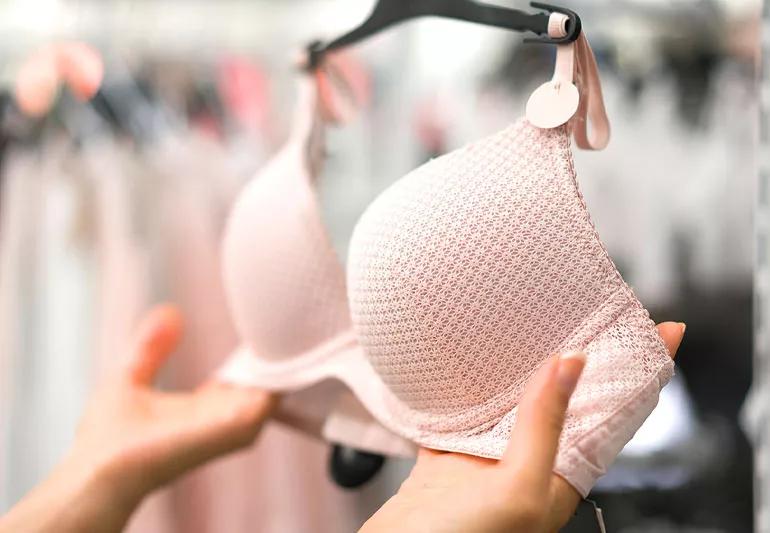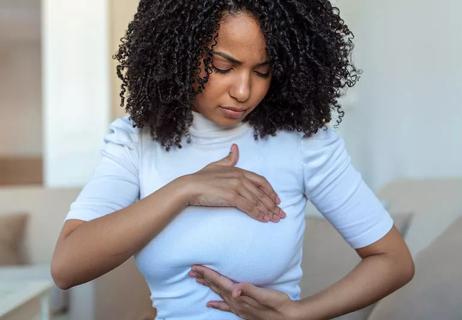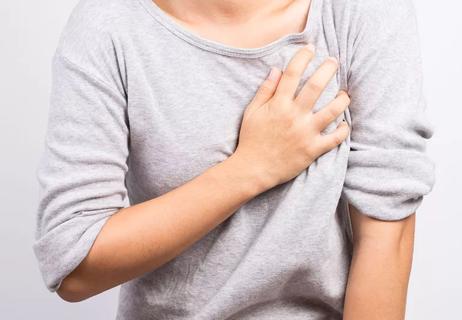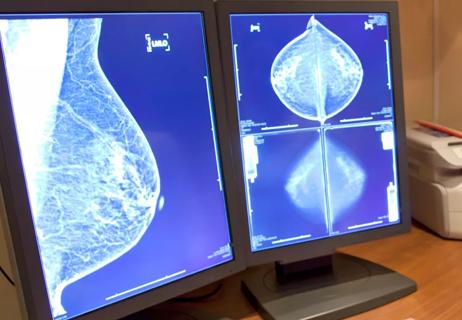It's a common complaint, but don't just ignore it

What’s going on when your breasts feel achy, tender or downright uncomfortable? Is it a feature of your menstrual cycle, a sign you need to go bra shopping or something more serious?
Advertisement
Cleveland Clinic is a non-profit academic medical center. Advertising on our site helps support our mission. We do not endorse non-Cleveland Clinic products or services. Policy
The good news is that it’s typically not a sign of something serious. “Most patients who come in with breast tenderness are worried about breast cancer, but that’s actually a less common cause,” says Ob/Gyn Jennifer Grabenstetter, MD. “Most women do not have breast tenderness with breast cancer.”
There are several other explanations for breast pain and discomfort, she says.
The most common source of breast pain is hormonal fluctuations relating to your menstrual cycle. You may notice that your breasts feel more swollen and tender right before your period starts.
“If the breast tenderness occurs in a pattern and affects the breast tissue equally on both sides, then it’s usually less worrisome,” Dr. Grabenstetter says.
Fibrocystic breasts — breasts with more fibrous or lumpy tissue — are especially prone to ongoing breast pain that worsens between ovulation and the start of your period. “This typically affects both breasts equally and, again, isn’t an indicator that anything is wrong,” she says
“There are several possible causes of breast pain that don’t relate to your menstrual cycle,” Dr. Grabenstetter says.
Advertisement
Dr. Grabenstetter offers five tips for easing cyclical breast pain:
Non-cyclical breast pain treatments vary, depending on what’s causing your pain.
If large breasts are the culprit, a better bra or breast reduction may offer relief. Cysts may resolve on their own, or your doctor may need to drain or remove them. Antibiotics typically treat mastitis. The bottom line about breast tenderness? Don’t freak out, but don’t ignore it. “A large percentage of women, about 70%, will have breast pain in their lifetime,” Dr. Grabenstetter notes. “We shouldn’t ignore breast tenderness, even though most of the time it does turn out to be benign. If you’re having persistent pain, speak to your physician.”
Advertisement
Learn more about our editorial process.
Advertisement

Dry skin, eczema, allergies and infections can all cause itchiness — but in some cases, itching may signify a more serious health condition

A breast abscess feels like a hot, hard and painful lump — seek support from a healthcare provider at first signs of an infection

Bacterial infections, breast abscesses and clogged milk ducts can all cause inflammation in your breasts

Any mass or abnormal area that you feel for more than three days should be checked out

How to separate serious concerns from minor pain

This lengthy and portentous name doesn’t necessarily mean a scary diagnosis

The little blue pill might help with physical arousal, but there are better treatments for low libido in women

For large breasts, wearing a bra may provide support that helps alleviate back pain — but if you’re comfortable without one, go for it!

Start having sex about 72 hours before ovulation, then at least every other day during your fertile window

Attachment theory suggests that your earliest relationships shape connections throughout your life

It isn’t a recognized mental health disorder, but research shows that problematic social media use can negatively affect your mental health, self-esteem and sleep